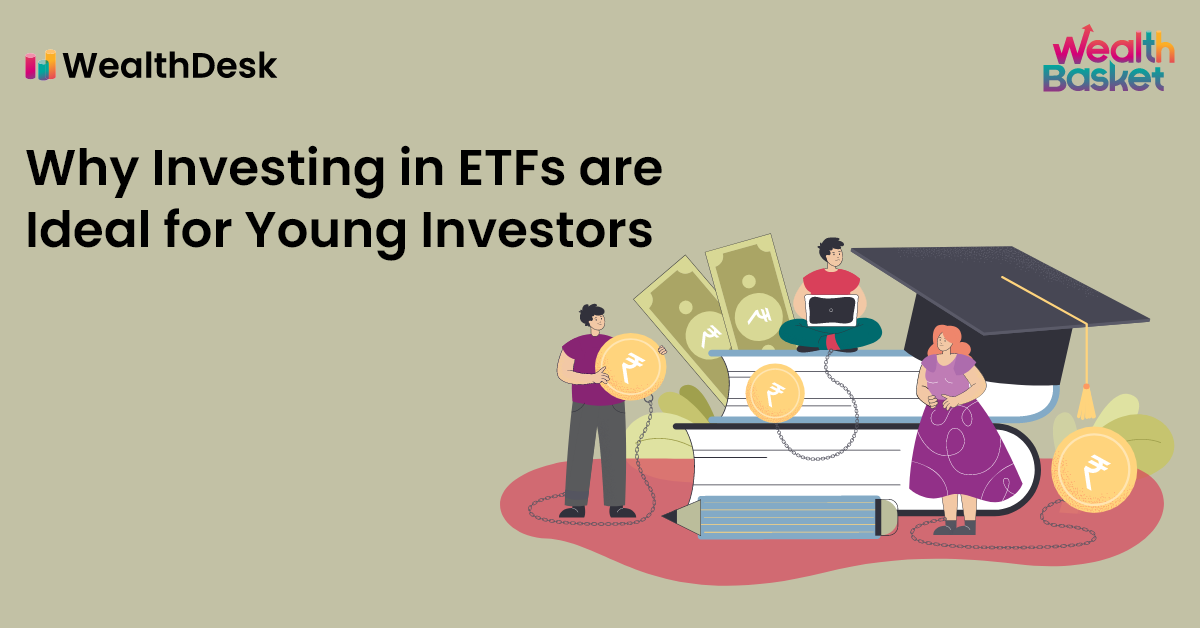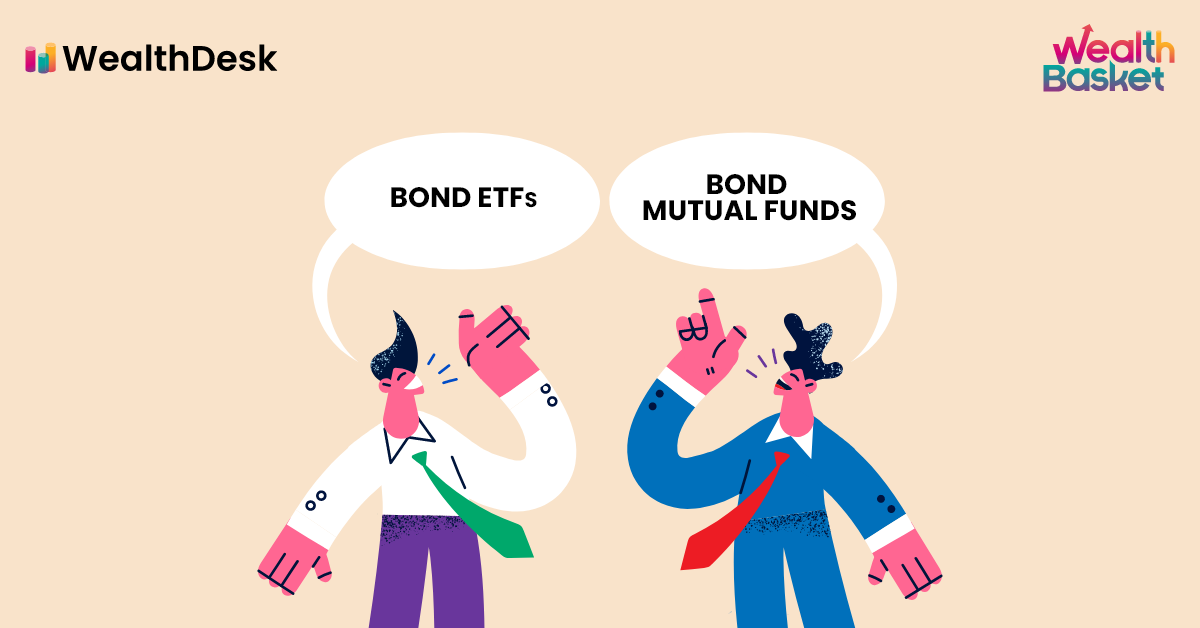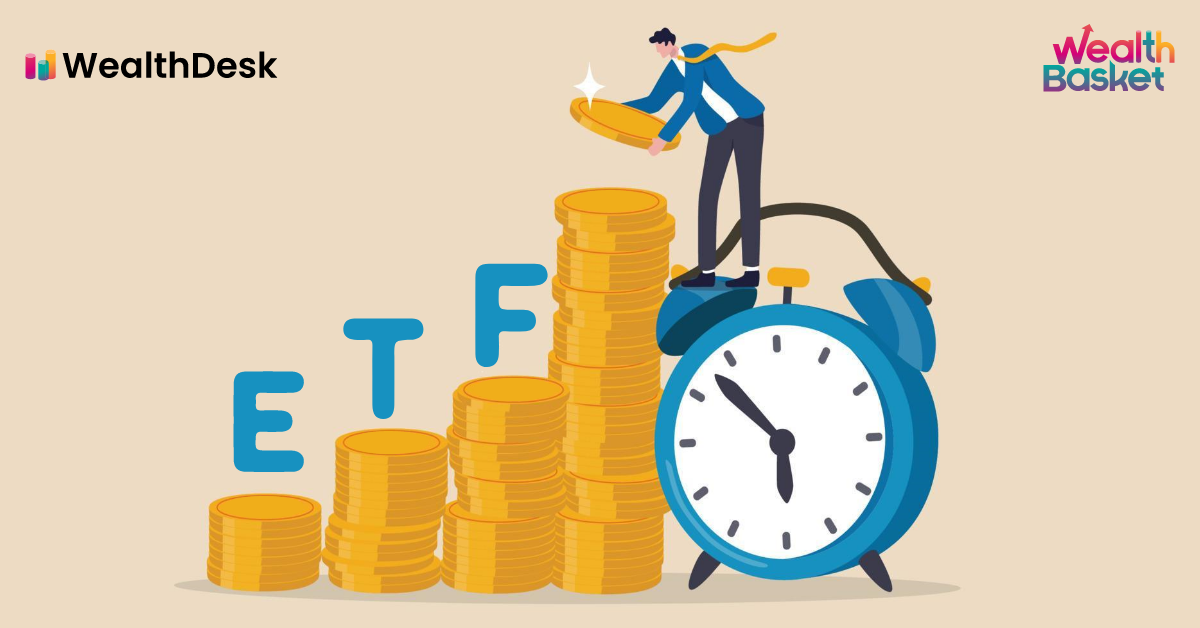From January 2022 until now, 50 new Exchange-traded funds (ETFs) have been launched as per the Bloomberg data. The suppressed demand last year due to the pandemic when the new ETF launched, during the same period last year was only 38.
Another common reason for the increasing popularity of ETFs is that they are highly cost-efficient. With a maximum of 0.2% annual administration costs, ETFs have a variety of other characteristics that make them perfect for young investors with limited resources to invest.
Understanding the Exchange-Traded Funds
An ETF is a passively managed investment instrument that tracks a particular index such as the stock market index, commodity index, or currency index. For example, HDFC Sensex ETF tracks Sensex, and it will duplicate the performance of Sensex by investing in other securities as listed on the Sensex.
The fund manager forms a fund that replicates the performance of a particular index. You can buy and sell these ETFs like you trade the stocks on the stock market. Hence, ETFs offer you real-time trading experience with more diversity of staying invested across sectors.
ETF Benefits
Compared to traditional open-ended funds, ETFs provide more affordable operational expenses than standard open-ended funds and offer flexibility, transparency, and tax efficiency in taxable accounts, which appeals to young investors.
Passive Investment Instrument
ETFs may be a smart alternative if you want to get market/Index returns on your investment passively. ETFs solely track the benchmark index, and there is minimal room for outperformance or underperformance, depending on the fund type.
Liquidity
Young investors keep a close watch on the market and are quick to trade their ETFs if they can get the price they want, which is why the liquidity factor of ETF works beneficial for them.
ETF liquidity is a critical aspect since ETFs trade on stock exchanges. You can sell them anytime since they do not have any lock-in period.
Low-Cost
Passive, low-cost ETFs are affordable for young investors with minimum capital. They offer cost ratios as low as 0.2 percent, which is substantially less than actively managed products.
Tax Efficiency
Although ETFs attract capital gain tax for the long-term or short-term, depending on the holding period, they offer you a tax-efficient ETF portfolio depending on the holding period. The capital gain generated for an ETF is generally for a smaller turnover since they are passively managed that track an index.
Flexibility
ETFs are traded on the stock market, and you can buy or sell them the way you trade equity stocks. Thus, ETFs give you the flexibility of trading them anytime you want without having to stay for a minimum period.
Well-diversified
ETFs offer significant diversity and track a more comprehensive range of equities. One ETF can provide exposure to many companies in a particular sector since they invest in all companies of an industry.
Various ETFs in India
| Sector ETFs | Bond ETFs | Commodity ETFs | Currency ETFs |
|
A
sector ETF
is a pooled investment instrument that invests
solely in stocks and securities of a specified
industry. E.g., Nippon ETF Infra BeEs, SBI ETF Nifty Bank |
A
bond ETF
creates a portfolio of bonds while targeting to
replicate the performance of the bond price
index. E.g., Bharat Bond, ETF |
Commodity exchange-traded funds
(ETFs) track the commodity’s price and try
to duplicate its performance. E.g., gold ETFs track the bullion price for gold in the market. |
A currency exchange-traded fund (ETF) is a
collective investment that exposes investors to
foreign Exchange (forex) or currencies. E.g., Market Vectors Indian Rupee/USD ETN |
ETF Returns
Let’s look at the absolute returns of the following ETF return details for one year as derived from mutual fund India.
| Name of the Fund | AUM (Crores) | Absolute Returns for 1-yr |
| CPSE ETF | ₹ 17,377.27 | 38.65% |
| Nippon India ETF Nifty IT | ₹ 980.69 | 37.62% |
| Kotak NV 20 ETF | ₹ 29.96 | 20.96% |
| Nippon India ETF Dividend Opportunities | ₹4.33 | 18.74% |
Conclusion
Young and busy individuals unfamiliar with the financial markets’ complexity or who do not have the time to track them regularly would be well-served by beginning with a passive management approach and gradually transitioning to a more energetic style as their investing knowledge grows.
How Can We Help?
At WealthDesk, we can offer you a readymade WealthBasket consisting of stocks or ETFs reflecting an investment strategy or theme designed explicitly by the SEBI-approved investment professionals and make your investment journey hassle-free.
FAQs
ETFs (exchange-traded funds) are perfect investment instruments for young investors with fewer resources. They trade throughout the day, ensuring considerable liquidity, and many have low-cost structures.
You can become an investor in hundreds of companies through a single ETF and leverage that position to grow your wealth better. However, it is not always true that you will become rich from ETFs.
Because of their numerous advantages, ETFs are great for new investors. These advantages include low expense ratios, ample liquidity, diversification, a low investment threshold, and so on.


















